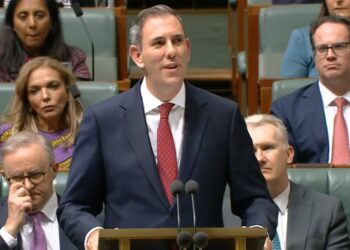Speaking with ifa, paraplanning veteran Hayley Knight said the time-poor nature of advisers’ work has led them to chase new technologies in hopes that will fix their efficiency struggles, particularly regarding the arduous task of crafting a statement of advice (SOA).
Unfortunately, most fail to live up to their expectations, leaving advisers with subpar and unnecessarily bulky tech stacks.
“There’s a lot of tech out there, right? And there’s quite a few that promise to solve all your problems with the SOA, but the ones that I’ve seen don’t seem to do that entirely,” Knight said.
“Speaking with advisers, they’re expressing some frustration because they think that this next piece of tech is going to solve all their problems, and they go through the process of implementing that into their back office, which is very time consuming and can be quite expensive, and introducing that new tech to the team, and then finding that either it doesn’t do what they originally thought or that they don’t end up using it to the full extent of its capacity.
“So, as much as there is talk about tech being able to basically do SOAs entirely for us, I haven’t yet seen any tech that can do it to the extent of replacing a paraplanner, unless it’s something that is just a very basic, vanilla, simple SOA. Anything that requires any kind of context or thinking through a strategy or anything like that, I don’t think the tech is there just yet.”
Knight explained that, as a result of being so time-poor, advisers are forced to put efficiency improvements on the back burner as they prioritise more urgent tasks.
“I think what this actually really comes down to is that advisers, in general, are very short on time,” she said.
“There’s so many stages in the advice process that they either don’t have a really deep understanding of their current tech or … they don’t feel like the SOA is that important in terms of process. It could be just a compliance step, which is also fine.
“They don’t have the time or they don’t really, I’m not saying they don’t care, but they just don’t have it as a priority in their business to focus on getting those efficiencies.”
Furthermore, with SOAs likely to see significant reductions and changes in the near future, it is understandable that many advisers would feel it unnecessary to make their own changes now as they will likely have to overhaul the process when new regulations are introduced.
“There’s a lot of talk about reform and regulation and that kind of stuff, which may mean that advice documents may not even exist in future. They’re likely to, but there’s always that kind of floating around as well,” Knight said.
“The question of the future of the advice document, plus the limited time that they already have in terms of all the other steps in the process that they need to be across, I think those two things combined create this environment where it’s like, ‘It’s not a priority for me, just going to get this done in some way’, and that’s enough for them right now.”
Tech replacing paraplanners
Despite significant advancements in advice technology over recent years, Knight argued it is still only capable of handling simple, low-value tasks. As a result, for the meantime at least, paraplanners are unlikely to be replaced by technology, though she said they should still consider upskilling in preparation for the future.
“With paraplanning at the moment, there are still a lot of what I call ‘black and white’ tasks. So, they’re tasks like data entry, or they’re cross-checking data, or they’re formatting, or those kinds of basic level tasks, and that’s where tech is coming in, and it’s moving and it’s doing a decent job, right?” she said.
“The higher-level tasks like strategic thinking and context and that kind of stuff still aren’t at threat from tech or anything like that, but it will eventually be.
“This is why they need to become more specialised and move away from those simple tasks into tasks that require some kind of human thought to be able to complete them.”
While AI has worked its way into various aspects of the advice process over recent years, Knight believes that it doesn’t yet pose a threat to advisers or paraplanners, though she said it will continue to advance and take on increasingly complex tasks as advancements continue.
“AI is great for things like template text, or cross-checking data, those really simple tasks. It’s great for that, but that’s pretty much the extent of where it can help at the moment. So, the more technical parts of a paraplanner’s role are still fine, but AI will start moving into those simple tasks that pretty much anyone can do,” she said.



